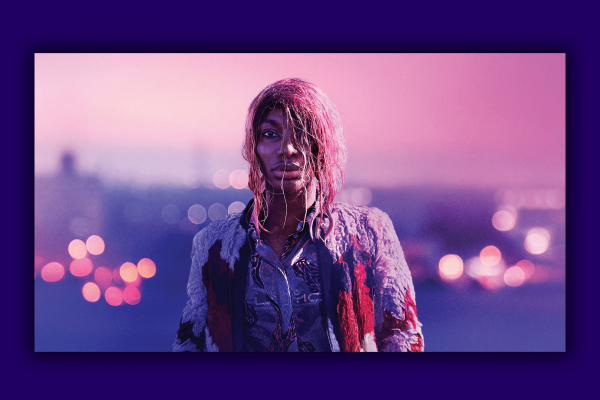I MAY DESTROY YOU, Michaela Coel’s brilliant 12-episode series released last summer on HBO (and BBC One), chronicles the haphazard recovery of millennial writer Arabella Essiedu after she survives a sexual assault. In Coel’s hands, Arabella (played by Coel herself) is never reduced to a battered woman or a perfect victim. She remains, throughout, entirely human—as do her friends and family. Watching the show reminded me of a line from Bertolt Brecht’s Messingkauf Dialogues in which an actor protests that he cannot play both “butcher and sheep.” Coel seems to disagree. Her Arabella is both warm and wildly narcissistic, armed with a righteousness that often wobbles into unbridled megalomania.
I May Destroy You is a champion of nuance. Although rape is allowed its own category of awfulness, Coel, as writer, draws her audience into other situations that aren’t so clear cut.Each episode is as compassionate as it is damning of human selfishness and myopia. Considering how little mainstream television centers the trauma and healing of Black women (much less with complexity), the critical acclaim Coel has accrued thus far is not surprising. Unfortunately, as is so often the case with art made by people of color, Black women in particular, this acclaim has yet to materialize in awards. I have mixed feelings about awards, especially when the diversity conversation in Hollywood seems in love with its own stagnancy. However, that doesn’t mean awards aren’t nice to have, or that their conferral signifies nothing; awards often reveal the white cultural establishment’s willingness to give something up. After all, if I May Destroy You gets nominated for a [insert trophy here], “Memily in Maris” might not win!
Read the Full Article

